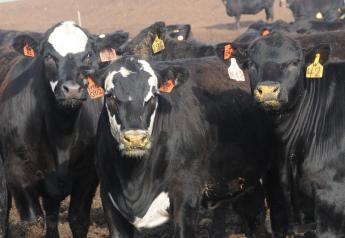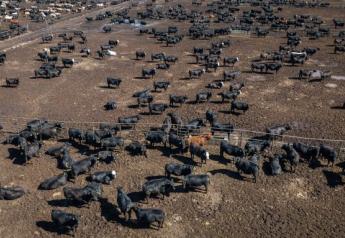USDA: Ag Will Be Net Beneficiary From Climate-Change Legislation

USDA has finally provided what many in agriculture and in Washington have been asking for: analysis on the impacts for agriculture of climate-change legislation.
According to information prepared for a Senate Ag Committee hearing on this topic today, USDA said the current version of climate-change legislation approved by the House would increase farm expenses by $700 million, or 0.3%, from 2012-18. Offsetting that increase would be revenues from carbon offsets for agriculture that are estimated by USDA to tally some $1 billion per year in the near term and upwards of $15 billion in 2040. Also, income from biofuels is expected to provide a net return of at least $600 million. USDA also said that EPA puts the net returns at $1 billion to $2 billion per year.
"Our analysis demonstrates that the economic opportunities for farmers and ranchers can potentially outpace - perhaps significantly - the costs from climate legislation," USDA Secretary Tom Vilsack said in a statement released by the Ag Department. "The agriculture sector will benefit directly from allowance revenues allocated to finance incentives for renewable energy and agricultural emissions reductions during the first five years of the HR 2454 cap and trade program."
Other highlights of USDA's analysis of the House climate-change bill (HR 2454):
- Funds for agricultural emissions reductions are estimated to range from about $75 million to $100 million annually from 2012-2016.
- Annual net returns to farmers range from about $1 billion per year in 2015-20 to almost $15-20 billion in 2040-50, not accounting for the costs of implementing offset practices.
Getting even more specific, Vilsack offered the following analysis relative to a Northern Plains wheat farmer:
- A Northern Plains wheat producer might see an increase of $.80 per acre in costs of production by 2020 due to higher fuel prices. Based on a soil carbon sequestration rate of 0.4 tons per acre and a carbon price of $16 per ton, a producer could mitigate those expenses by adopting no-till practices and earning $6.40 per acre.
Further, Vilsack said, "it's quite possible that this wheat farmer could do even better if technologies and markets progress in such a way that allows for the sale of wheat straw to make cellulosic ethanol.
He added that USDA can help smooth this transition "by using our Farm Bill conservation programs to assist landowners in adopting new technologies and stewardship practices. It is also worth noting that the House bill includes important provisions regarding how to adapt and increase resiliency to climate change impacts, which will be important for our nation's farmers, ranchers and forest landowners. Ensuring that landowners and communities have the tools and information they need to adapt to climate change is a priority for this Administration."
Vilsack's conclusion from the analysis: "In the short term, the economic benefits to agriculture from cap and trade legislation will likely outweigh the costs. In the long term, the economic benefits from offsets markets easily trump increased input costs from cap and trade legislation."
Even though it appears the analysis does back up what USDA has maintained -- that agriculture will be a net beneficiary of climate-change legislation -- today's hearing will not be the last. "It's clear we have to have more hearings on this," Senate Ag Committee Chairman Tom Harkin (D-Iowa) said after hearing testimony this morning from the American Farm Bureau Federation, National Farmers Union and others. Testimony this afternoon will feature USDA's Vilsack, EPA Administrator Lisa Jackson and Dr. John Holdren, Director of the White House Office of Science & Technology.







